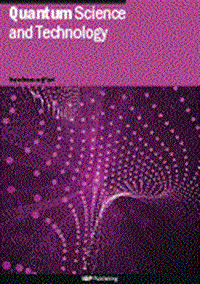混合量子经典卷积神经网络与隐私量子计算
IF 5.6
2区 物理与天体物理
Q1 PHYSICS, MULTIDISCIPLINARY
引用次数: 0
摘要
机器学习算法帮助我们从大数据中发现知识。用于训练或预测的数据通常包含有关用户的私人信息。在保护数据或用户隐私的同时发现知识是机器学习的预期方式,特别是在云环境中。量子机器学习是一种通过量子叠加实现并行加速的机器学习。量子机器学习的量子计算能力通常由量子云计算服务提供。现有的量子机器学习算法很少考虑隐私保护。提出了一种混合量子-经典卷积神经网络算法中图像数据的加密方法,可以有效地保护输入数据的隐私。用户的原始图像数据首先被加密,然后发送到量子云计算图像卷积。这样,用户就可以获得密文图像的特征映射。对特征映射进行解密得到的结果与将原始图像作为卷积计算的输入得到的结果相同。实验表明,我们的隐私保护方案能够保护量子-经典混合神经网络算法中输入图像数据的隐私性,但不影响算法的准确性。除了图像加密和特征映射解密外,该方案不会带来额外的计算复杂度。本文章由计算机程序翻译,如有差异,请以英文原文为准。
Hybrid quantum–classical convolutional neural networks with privacy quantum computing
Machine learning algorithms help us discover knowledge from big data. Data used for training or prediction often contain private information about users. Discovering knowledge while protecting data or user privacy is the way machine learning is expected, especially in the cloud environment. Quantum machine learning is a kind of machine learning that realizes parallel acceleration by quantum superposition. Quantum computing power for quantum machine learning is typically provided by quantum cloud computing services. Existing quantum machine learning algorithms hardly consider privacy protection. This paper presents an encryption method for image data which can effectively protect the input data privacy in hybrid quantum–classical convolutional neural networks algorithm. The user’s original image data is first encrypted, and then sent to the quantum cloud to calculate the image convolution. By doing so, the feature map of the ciphertext image is obtained by the user. The result obtained by decrypting the feature map is the same as that obtained by using the original image as the input of convolution calculation. Experiments show that our privacy protection scheme can protect the privacy of input image data in the hybrid quantum–classical neural networks algorithm, but does not affect the accuracy of the algorithm. In addition to image encryption and feature map decryption, the proposed scheme does not bring additional computational complexity.
求助全文
通过发布文献求助,成功后即可免费获取论文全文。
去求助
来源期刊

Quantum Science and Technology
Materials Science-Materials Science (miscellaneous)
CiteScore
11.20
自引率
3.00%
发文量
133
期刊介绍:
Driven by advances in technology and experimental capability, the last decade has seen the emergence of quantum technology: a new praxis for controlling the quantum world. It is now possible to engineer complex, multi-component systems that merge the once distinct fields of quantum optics and condensed matter physics.
Quantum Science and Technology is a new multidisciplinary, electronic-only journal, devoted to publishing research of the highest quality and impact covering theoretical and experimental advances in the fundamental science and application of all quantum-enabled technologies.
 求助内容:
求助内容: 应助结果提醒方式:
应助结果提醒方式:


